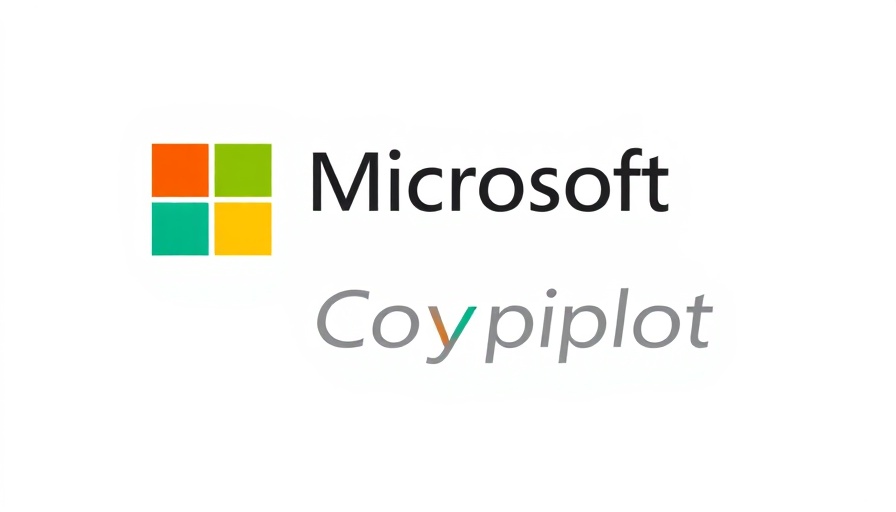
Revolutionizing Healthcare with Microsoft Dragon Copilot
As the healthcare industry evolves, innovative technologies continually emerge, reshaping traditional workflows. One such groundbreaking development is the Microsoft Dragon Copilot, the first unified voice AI assistant tailored to enhance clinical workflows. This cutting-edge tool synthesizes proven technologies from Dragon Medical One (DMO) and the DAX Copilot, combining natural language voice dictation with ambient listening capabilities to alleviate the administrative burdens that plague clinicians.
Transforming Clinical Documentation and Workflow Efficiency
Healthcare organizations are increasingly embracing the power of voice AI technologies to streamline operations. Dragon Copilot is designed to significantly improve clinical documentation processes and elevate patient experience through efficient workflows. By minimizing unnecessary documentation time, clinicians can dedicate more attention to patient care.
Studies indicate a remarkable impact, with clinicians reportedly saving an average of five minutes per patient encounter. This time savings translates into improved job satisfaction across the healthcare workforce. As Joe Petro, corporate vice president at Microsoft Health and Life Sciences, stated, “AI has the incredible potential to free clinicians from much of the administrative burden in healthcare.”
Enhancing Patient Experiences with AI Innovations
It is not just clinicians who benefit from the Dragon Copilot; patients too see enhanced experiences. A survey revealed that 93% of patients reported an overall better experience when using healthcare services powered by this technology. Features like automated task management—such as generating referral letters and after-visit summaries—ensure that critical information is accurately communicated, which is vital for improved patient outcomes.
The Growth of Voice AI in Healthcare
The adoption of voice AI technologies in healthcare is not merely anecdotal; it is a trend backed by market research. The global healthcare virtual assistant market is projected to reach $5.8 billion by 2024. This growth is driven by increasing needs for efficient patient communication and care coordination.
Future Insights: A Shift Toward Integrated Technology
As we look toward the future, the role of voice AI in healthcare is anticipated to expand dramatically. By 2026, it is estimated that 80% of healthcare interactions will incorporate voice technology. This change hints at a complete transformation in how clinical discussions are recorded and analyzed, allowing for more integrated approaches to patient care and documentation.
The Need for Innovative Solutions Amid Workforce Challenges
Clinician burnout remains a significant issue within the healthcare system, contributing to an impending workforce shortage. Microsoft's Dragon Copilot addresses this challenge by reducing stressors related to documentation and enabling better job satisfaction for healthcare workers. In a 2024 survey, 70% of clinicians reported feeling less burnt out, demonstrating the effectiveness of integrating AI technologies into the healthcare landscape.
Real-World Impact: Statistics That Matter
With healthcare organizations now beginning to adopt Dragon Copilot, the results appear promising. Alongside the reported reductions in clinical burnout, specific metrics speak volumes about the advantages of this technology. For instance, 62% of clinicians stated they are less likely to leave their organizations, a statistic that could help mitigate the ongoing staffing challenges many healthcare institutions face.
Moreover, functionalities such as multilanguage support and personalized formatting empower clinicians across various specialties, further enhancing the adaptability of Dragon Copilot in diverse medical settings.
Conclusion: An Invitation to Embrace Innovation
The introduction of Microsoft Dragon Copilot is a significant leap forward in the healthcare industry. It represents not just an innovative tool but an essential component for improving clinician and patient experiences alike. As the landscape continues to shift toward technology-first approaches, it's imperative for healthcare organizations to embrace these advancements. By doing so, they can ensure they remain at the forefront of care delivery, ultimately enhancing the health and wellbeing of the patients they serve.
 Add Row
Add Row  Add
Add 




 Add Row
Add Row  Add
Add 

Write A Comment